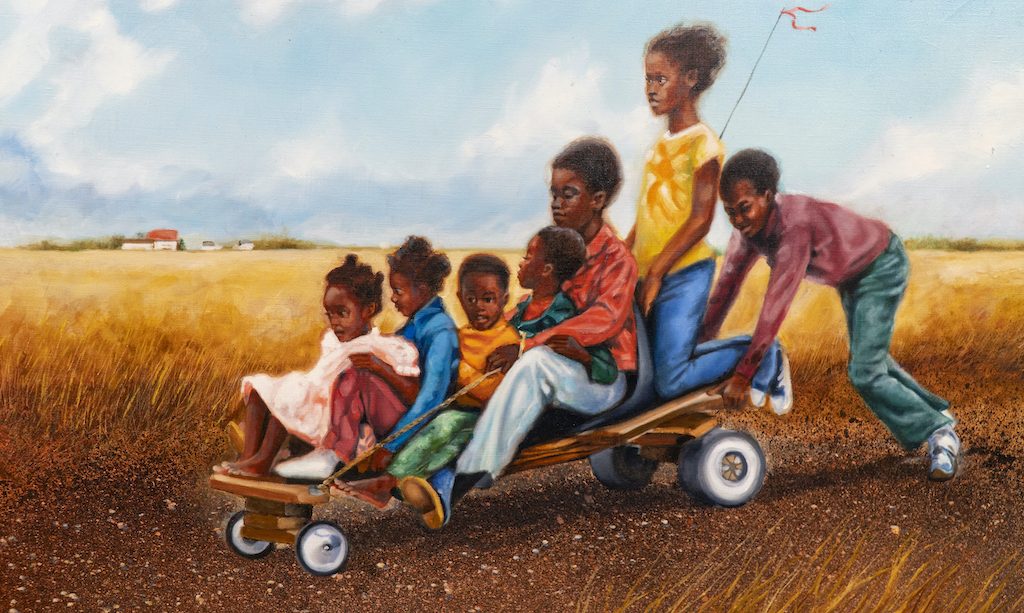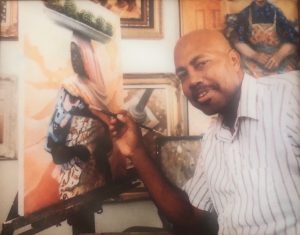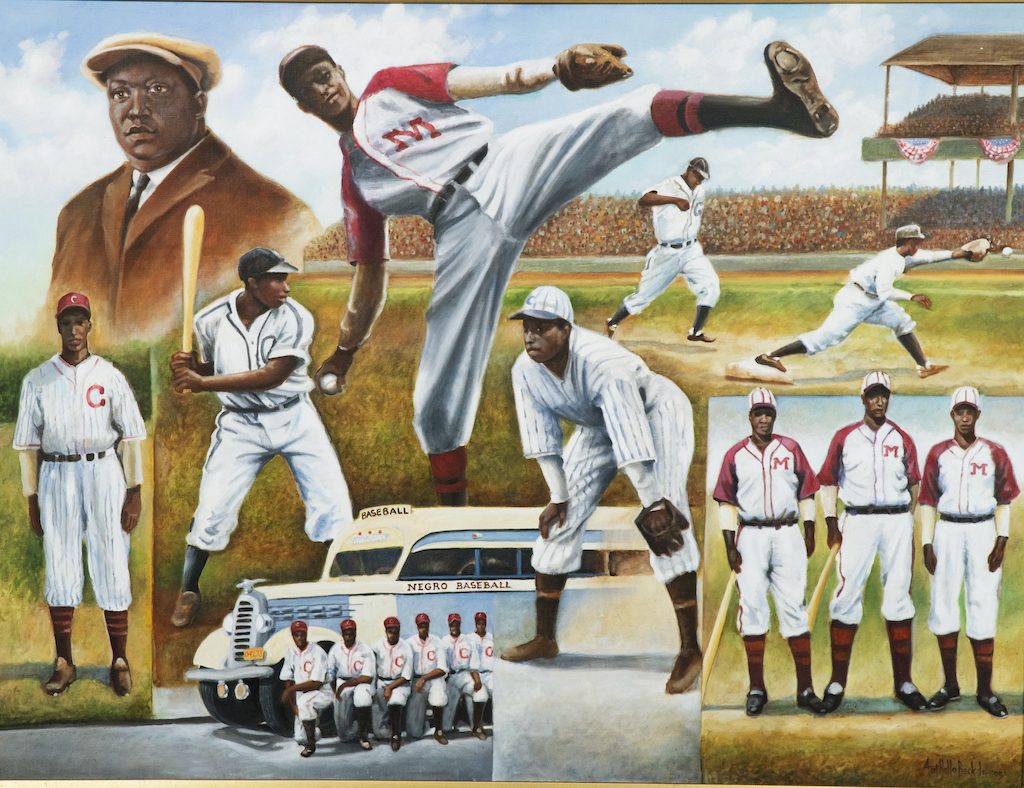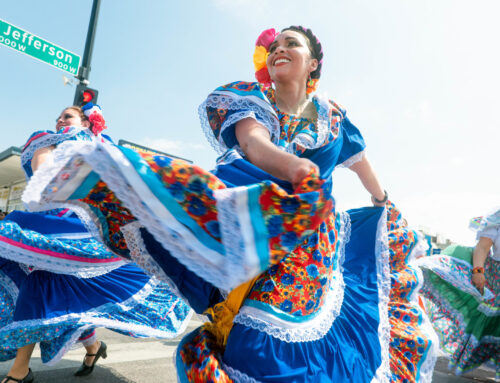An exhibit at the African American Museum Dallas spotlights Arthello Beck Jr., the Oak Cliff-based artist who died in 2004.
Humanization: The Artistic Eye of Arthello Beck Jr. has 35 paintings and runs March 22-April 15; the show is free.
The City of Dallas plans to erect a sculpture in Beck’s honor at Twin Falls Park this year.
The exhibit was curated by Jennifer Monet Cowley, who also designed the sculpture. An artist discussion is planned for 11 a.m.-1 p.m. Saturday, March 26, at the museum. Beck’s wife, Mae Beck, and his best friend, Carl Sidle, will be present.
Beck took art classes at Lincoln High School but otherwise was self-taught, according to the Handbook of Texas. His studio on South Beckley was the first Black-owned gallery in Dallas.
Considered by many to be one of the leading artists of the Southwest, Beck traveled to Central America, South America, West Africa, England, China, Egypt, Turkey, and the Caribbean. In 1985 Texas Governor Mark White appointed Beck as a Goodwill Ambassador for the State of Texas. In the summer of 1993 Arthello and his wife, along with about eighteen other Texans, participated in a cultural and trade mission to Ghana. Beck once told a reporter, “I do believe an artist has to see things. An artist has to travel.”
Beck’s artwork “not only captured the daily lives of African Americans in Dallas but also addressed social, political and religious subjects in a variety of mediums,” a media release from the museum states.
In 1970 at age 29, Beck said: “I am alive, and I am Black! Therefore, I am motivated to paint the human elements and conditions that affect humanity. Truth has motivated me to paint along with a desire to express myself. Because I am life, I am compelled to paint the realities of life. Therefore, I have a strong desire to communicate with Black people through my paintings, so they won’t become isolated from one another.”








